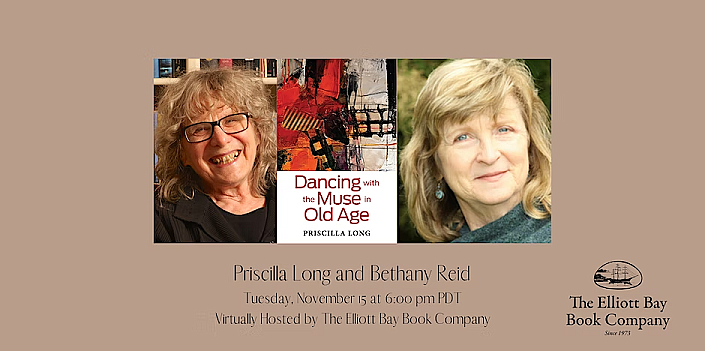Good Poetry for Hard Times
I have mentioned my upcoming class, Good Poetry for Hard Times, to you before, and posted the announcement on my Home page with other events, but this evening I’m taking a moment to promote it again. In short:
My Creative Retirement Institute (CRI) class begins May 24 and continues for a total of four Fridays, on Zoom, 1-3:00. As far as I know, anyone can take a CRI class (do you have to prove you’re retired? I don’t think so), and they are inexpensive. This class is $58.
For some backstory, I first proposed to teach a Zoom poetry workshop. CRI doesn’t do craft classes, it turns out, but rather than simply say no, they asked if I would consider teaching a class about poetry, and I said yes.
The first title was Your Memorable Poem (like my workshop last year), but someone at CRI didn’t like that title. We came up with Good Poetry for Hard Times because I had been thinking a lot about Gaza, Ukraine, Nigeria…political division in our own country, mass shooti… Okay, I’m going to stop there. My thought was, Who has time to read (or write) poetry? Does the world need another poem? Shouldn’t I be doing something?
When I asked my journal that question, these are some responses my brain came up with:
1. Reading poetry (writing poetry, too) is doing something. It makes us pause and catch our breath. It can bring us joy (it definitely brings me joy).
2. A good poem, shared at the right moment, brings breath and joy and hope to the recipient, too.
3. To expand on that, poetry (all art for that matter, and joy, too) is not a luxury. We need it.
For women, then, poetry is not a luxury. It is a vital necessity of our existence … The farthest external horizons of our hopes and fears are cobbled by our poems, carved from the rock experiences of our daily lives.
—Audre Lorde
4. How is poetry a necessity? William Stafford called it a way of paying attention, and what could be more useful today than a habit of attention? Not distraction, not self-medicating. Attention.
5. Poems help make sense of loss. They are vehicles for emotion, and when we see that this poet — famous, obscure, long long dead — felt what we feel, then at the very least we feel less alone.
6. In times past, when poets retreated into the mountains (Basho, Yuanming) or into monasteries (Gerard Manley Hopkins), or into their upstairs bedroom (Emily Dickinson), what were they retreating from? How did their poetry help them to survive? (How might their poetry help us to survive our times?) Nothing too shocking or earth-shattering, but these are the questions I would like to sit with for a while.
What will each class look like?
I’m cobbling together a handout of about 50 poems that inspire me. At each session, I’ll read several poems aloud, pausing over each poem to introduce the poet, and offering context I find useful. I will also talk through what I find intriguing, healing, inspiring, memorable about each poem. Other participants (are they students if there’s no prep and no homework?) are encouraged to break in with questions or to add their comments and insights to mine. (I am HOPING people will want to talk about the poems.)
I predict that the time will fly by. So, here’s why I’m promoting it:
The class is a go, but it is slightly under-enrolled, and I’m really really hoping for a few more people. All motivations welcome:
- The person who slept through poetry class in high school, but is ready now to see what all the fuss is about. “What’s this I hear about poetry being good for your brain?”
- Someone who read Priscilla Long’s Dancing with the Muse in Old Age and could use an introduction to poetry before beginning his own writing practice.
- Anyone who has been reading and writing poems for years, but, like me, finds this particular conversation timely and intriguing.
The creation of art, okay, just the attempt at the creation of art, as well as the appreciation of it, is both an enlarging of the world and an expanding of consciousness.
—Dean Young, The Art of Recklessness
If you — or someone you know — fits into any of these categories, here’s the link for CRI: https://www.edmonds.edu/programs-and-degrees/continuing-education/creative-retirement-institute/
I hope to see some of you there. White hair not required.
[I believe this link will take you directly to the course description: https://www.campusce.net/edmondsarts/Course/Course.aspx?c=1491]


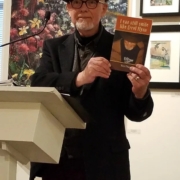
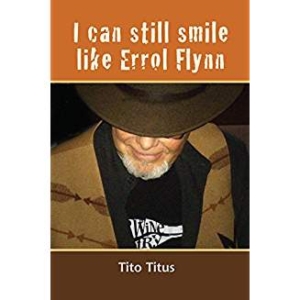 somewhere, someone had given me his book of poems. On Saturday at the launch of I Sing the Salmon Home, he said hello and introduced himself. Today, I rummaged through my bookshelves, found his book, and read it all the way through, even the end notes (which are sort of a poem, themselves).
somewhere, someone had given me his book of poems. On Saturday at the launch of I Sing the Salmon Home, he said hello and introduced himself. Today, I rummaged through my bookshelves, found his book, and read it all the way through, even the end notes (which are sort of a poem, themselves).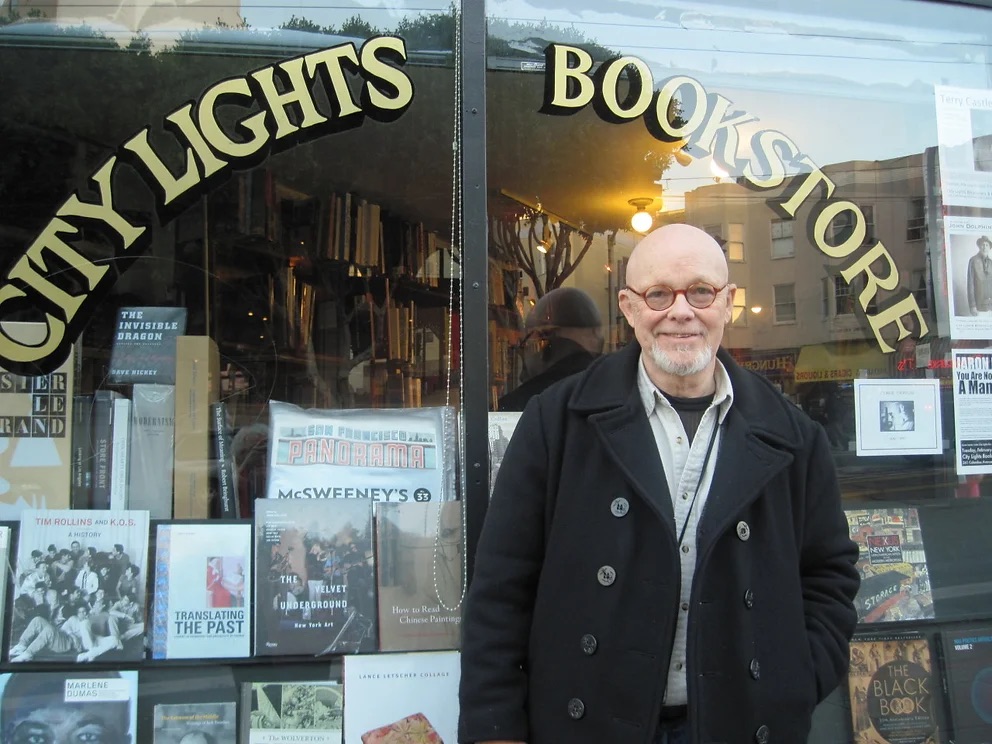

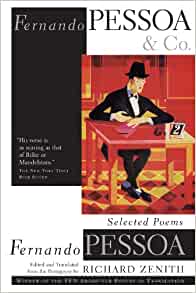 Ricardo Reis, and Álvaro de Campos. Pessoa created entire biographies for these alter-egos and considered them mentors and colleagues. He is, Zenith tells us, “an editor’s nightmare,” but also a treasure trove:
Ricardo Reis, and Álvaro de Campos. Pessoa created entire biographies for these alter-egos and considered them mentors and colleagues. He is, Zenith tells us, “an editor’s nightmare,” but also a treasure trove: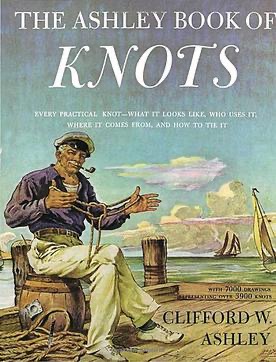 I’ve been reading—or reading around in—another strange book, this one titled The Ashley Book of Knots. It was written and illustrated (3384 numbered illustrations) by Clifford W. Ashley, and first published in 1944. My copy belonged to my paternal grandfather (a Navy Seabee during WWII, which must explain why the book looks so well-read; I could go on a bit about my grandfather—as he was in his 40s and had 5 children when he enlisted; he kept his paychecks [from what I’m told], but wrote letters home signed, “Your poet, Gene”). His name and the date, Eugene H. King, 10/14/46, are written on the inside front cover. I can guess that the book came to belong to my father in 1959, when his father died. Since 2012, it has been mine, and this year I finally took it down from the shelf.
I’ve been reading—or reading around in—another strange book, this one titled The Ashley Book of Knots. It was written and illustrated (3384 numbered illustrations) by Clifford W. Ashley, and first published in 1944. My copy belonged to my paternal grandfather (a Navy Seabee during WWII, which must explain why the book looks so well-read; I could go on a bit about my grandfather—as he was in his 40s and had 5 children when he enlisted; he kept his paychecks [from what I’m told], but wrote letters home signed, “Your poet, Gene”). His name and the date, Eugene H. King, 10/14/46, are written on the inside front cover. I can guess that the book came to belong to my father in 1959, when his father died. Since 2012, it has been mine, and this year I finally took it down from the shelf.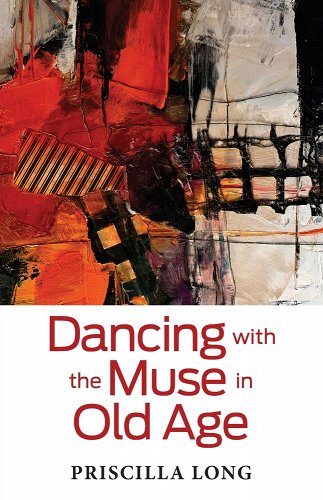 book, Dancing with the Muse in Old Age. After losing my father at age 82 to a stroke; after accompanying my mother through ten years of Alzheimer’s, stroke, and skilled-nursing care, then her death at age 86; I had pretty much decided that I’d better get things done right now, because I would be decrepit very very soon.
book, Dancing with the Muse in Old Age. After losing my father at age 82 to a stroke; after accompanying my mother through ten years of Alzheimer’s, stroke, and skilled-nursing care, then her death at age 86; I had pretty much decided that I’d better get things done right now, because I would be decrepit very very soon.

